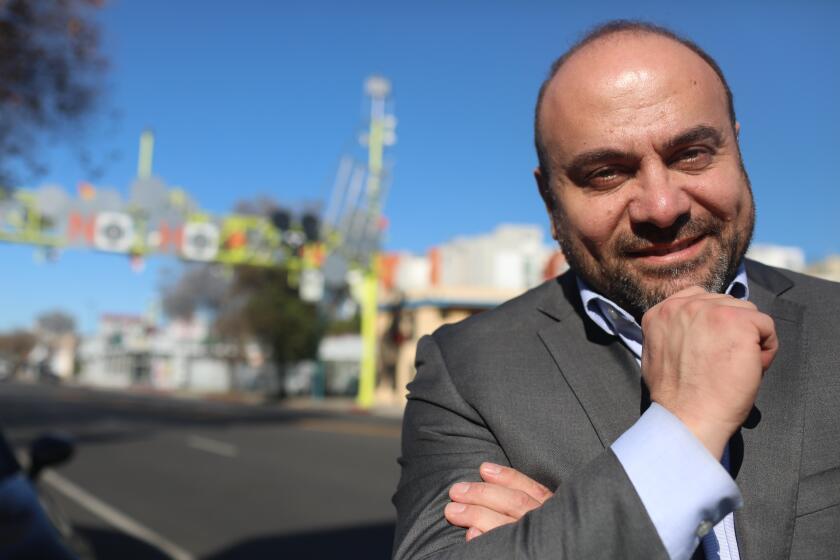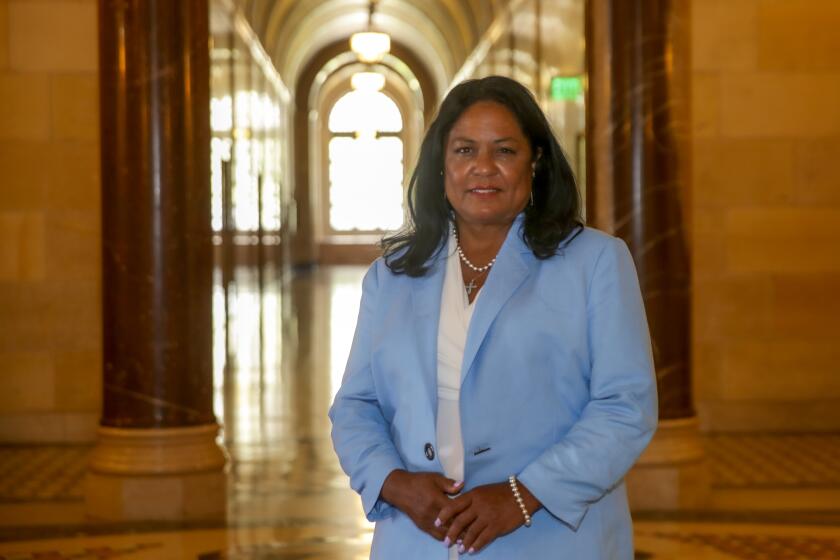Bush’s ‘what ifs’
George W. Bush made it clear during his final presidential news conference Monday that he wants to be remembered as a decisive president who followed his convictions about the best way to protect and strengthen his country, even though they were often unpopular with “some of the writers and the, you know, opiners and all that.” Unfortunately, Bush still doesn’t recognize that holding firm beliefs and sticking to them aren’t nearly as important as being right.
Bush did offer some acknowledgments of the mistakes he’d made in his eight-year term, but they were few and grudging. Mostly, he was combative toward his critics and defensive about his record -- hardly unusual for a president in his final week in office, a time for talking up one’s accomplishments and burnishing one’s legacy. It’s just that in Bush’s case, it’s hard to escape the conclusion that he actually believes his own spin.
Bush’s inability or unwillingness to admit his own failures is well known, but his pained efforts to address them Monday only made them seem more glaring. Asked about the nation’s moral standing abroad, Bush denied that it has been diminished at all, except perhaps among Europeans and other “elites.” On Hurricane Katrina, he positioned himself as the victim of unfair criticism for not landing Air Force One in New Orleans or Baton Rouge in the immediate aftermath -- as if this, and not the federal government’s disastrously slow response, was the real focus of controversy. He forgave himself for his role in the country’s economic meltdown by pointing out that he took office during a recession and presided over 52 months of job growth before things went bad -- without mentioning that he did it by increasing government spending and cutting taxes at the same time, turning a federal surplus into a punishing deficit that will make recovering from today’s woes far harder.
Yet if Bush’s last hurrah with the White House press corps pointed up many of his biggest failings, it also was a reminder of why so many people voted for him in 2000 and 2004. Inarticulate but charming, he joshed his way through the event while making compelling points about the need for the Republican Party to be more inclusive, the importance of Social Security reform and the benefits of free trade. It’s enough to make one wonder what might have been if 9/11 hadn’t happened -- if Bush hadn’t had a reason to send troops overseas or reinvent the national security apparatus, but had been able to concentrate on the domestic issues on which he’s far more conversant, and on being a “uniter, not a divider.” There’s a chance he might have been a half-decent president.
Not a strong chance, mind you.
More to Read
A cure for the common opinion
Get thought-provoking perspectives with our weekly newsletter.
You may occasionally receive promotional content from the Los Angeles Times.










